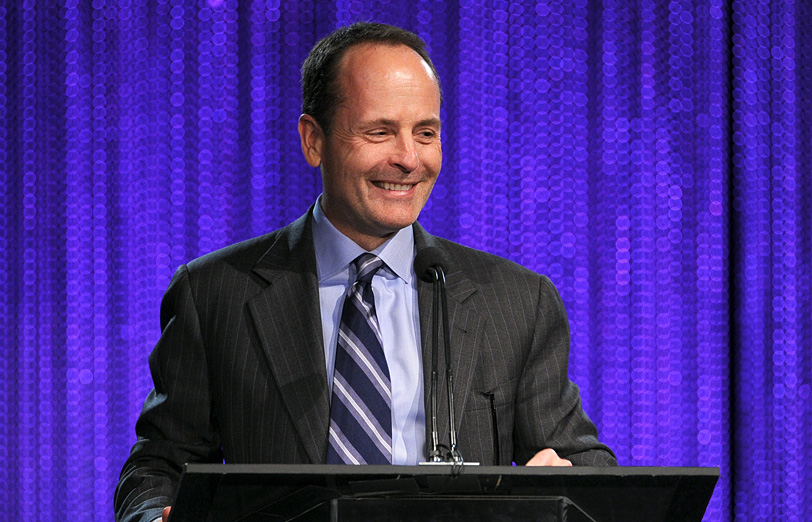FX Boss: ‘There Is Simply Too Much Television’

Have we finally reached “peak television”?
Echoing a refrain that reporters and executives have expressed throughout this summer’s Television Critics Association press tour, FX Networks CEO John Landgraf shared his frustration that not only has he lost track of every original scripted series on TV, but he has even lost track of every programmer in the scripted business.
Before his session with reporters, FX shared a series of charts that illustrated TV’s programming glut. In 2014, broadcast/basic cable/pay cable/online ran 371 original scripted series, compared to 211 in 2009. That number is likely to surpass 400 this year, Landgraf added. (Through the end of June 2015 the number was already at 267.) And that doesn’t include the enormous amount of unscripted fare on TV.
“Just when I think we’re at [saturation] point, another network jumps into the scripted game,” he said. “This is simply too much television.” Landgraf said he believed 2015 or 2016 “will represent peak television in America,” and that “we’ll begin to see declines in the year after that.” We’re in the “late stages of a bubble… It’s musical chairs, and they’re starting to take chairs away, and we want to grab a seat.”
He doesn’t see a “bubble burst,” however, but more of a “deflation.” Some outlets, like streaming services Netflix, Amazon and Hulu, will continue to increase their output, while others will decrease. FX is “at or near” the number of original shows it can sustain, he said: “It’s impossible to maintain quality control with too many shows. It requires great focus and effort to five each show the care it deserves. No one bats .1000 in TV. There are none of us who have not stumbled. But we feel good about where we are.”
Not everyone will surivive the brave new world, however. “What I don’t think will happen is independent channels fairing well in the future,” he said. “There will be a little bit of a culling of the herd and consolidation.”
Landgraf said the sheer amount of programming is “spreading out the audience and lowering everyone’s ratings… take the fixed audience and divide it by 400 shows, and it stands to reason that most will go down.” Viewers are also distracted by the easy availability of library fare: “SVOD has now taken, as well as services like HBO Go, every great episode of every TV show ever made and made them available at all times.”
The exec also pointed out that, as viewership spreads out over time, the ability to make revenue off a TV show is challenged. He pointed out that American Horror Story: Freak Show saw its audience jump from 7.6 million after seven days of DVR/VOD usage to 12.6 million after 60 days.
“Managing through this transition is hard,” Landgraf said, admitting that in a perfect world he “would have preferred not to sell any of our content to Netflix.” That money was key, however, to pay profit participants and also to help grow FX Networks. “We have a responsibility to content and creators to maximize value and pay them profit,” he noted.
But nonetheless, as viewers move away from watching traditional TV channels the key to survival will be marketing your brand in other ways to viewers, Landgraf said. “The new frontier is defined by brands. Programmers without brands will have a huge struggle as time goes on. Brands mean more than ever before.
More TCA Coverage






